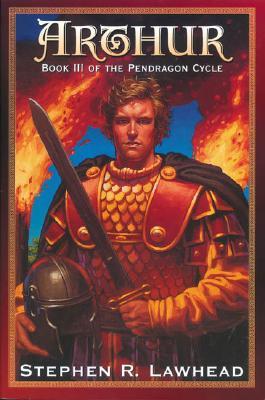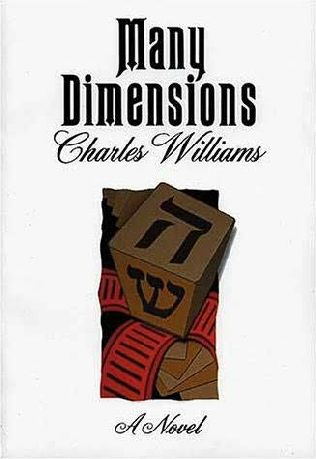December 06, 2005
The Top Fifty, Part VIII

Paradise Lost (John Milton) - This is the quintessential epic English poem. Penned by Milton in the 1600s, it relates the story of Lucifer's revenge on God after he has been cast out of Heaven. Bursting from the confines of Hell he blazes a trail to Earth, bent on corrupting God's pristine masterwork in any way he can. Little does he know that even his success in destroying Man's innocence and introducing Sin into the world will lead to God's ultimate victory with mankind's redemption and salvation. In the poem's final section, an angel reveals God's plan for mankind's history to Adam in its entirety, giving him hope for the future even as he is cast forth from the Garden of Eden forever. Beautifully written and vividly described, the real strength of Paradise Lost lies in its characters and in its source material: The Bible.
Oh, look at me! I'm such a poser (again)! I have Milton and Shakespeare on my list! Well, this is a book which I have written about before, it just so happens. I stayed up all night to finish Paradise Lost one Christmas break because I couldn't put it down, and I was so excited about it that I got up and started writing a post that shows definite effects of sleepiness. That aside, I guess Milton probably isn't for everyone, and I've heard a lot of complaints about his theology (however relevant that may be to a literary work). But whether he gets it right or wrong in the end, Milton did give me a startling new perspective on the story of Creation and Fall which, while it probably didn't shed much valuable light on the story itself, gave me a lot to think about with respect to almost everything else. And, in the end, isn't that the essential point of a retelling anyway?

Harry Potter and the Goblet of Fire (J. K. Rowling) - The pivotal fourth novel in the seven part tale of Harry Potter's training as a wizard and his coming of age. Fourteen-year-old Harry gets away from the pernicious Dursleys and goes to the Quidditch World Cup with Hermione, Ron, and the Weasleys. He then begins his fourth year at Hogwarts Academy where he is mysteriously entered in an unusual contest that challenges his wizarding skills, friendships and character. The event involves two other rival schools of magic, and a competition that hasn't happened in a hundred years. Amid signs that an old enemy is growing stronger, all he wants is to be a normal, fourteen year old wizard. Unfortunately for Harry Potter, he's not normal - even by wizarding standards.
The Harry Potter series (idiot controversy aside) is one of the supreme children's literature creations of all time. Sadly, as of this writing, it is still one book shy of completion. Nevertheless, the series thus far is an incredible joy to read. My personal favorite thus far (by a nose) is Goblet of Fire, as the central book on which everything else hinges. This is, of course, yet another case of a book in a series that might not be on the list without the support of other books which are not.
Despite the publication of the first book in 1997, I was not allowed to begin reading the series while still living at home. This was a subject of much contention for years (you may find my definitive final word on the subject here), and ultimately I did not begin the first book until I moved out of the house during the summer after I graduated from high school (2002). It was probably, in fact, one of the first things I did. At the time, the fourth book was just coming out in paperback, but I only bought the first one to read and discover what all the fuss was about to see if I would want to continue the series.
To make a long story short, I did, and I rapidly acquired the remaining three. I read most of book two during the trip from Lubbock to Longview when I moved in at LeTourneau my freshman year. I read book three during Thanksgiving Break my freshman year. And I read book four during Spring Break my freshman year (at least the final half of it one sitting). Book five came out that summer, and a generous aunt (one of the few relatives I have who will tolerate the series . . . and, incidentally, who has actually bothered to read it) loaned me a copy. I finished it in three sittings while on vacation travelling about the state with my family. And, of course, book six came out just this summer, and just as I was casting about for the means to get my hands on it, my wonderful girlfriend informed me that she had bought it as my early birthday present. When it arrived I finished it in two sittings.
All that I need add to complete this brief history of myself and the Harry Potter series is that I have arrived on opening night to showings of the last two HP movies (the third was the best of the series, the fourth perhaps the worst). Trust me, people should be reading these books, but if they don't or won't . . . well, their loss.
The Great Train Robbery (Michael Crichton) - Lavish wealth and appalling poverty - and Edward Pierce easily navigates both worlds. Rich, handsome, and ingenious, he charms the city's most prominent citizens even as he plots the crime of the century - the daring theft of a fortune of gold. But even Pierce could not predict the consequences of an extraordinary robbery that targets the pride of England's industrial era: the mighty steam locomotive.
To the best of my recollection, I read this book in its entirety during one night in the lounge of Andy's suite at John Brown University. I had finished my first spring semester at LeTourneau, and I was spending a week at JBU with Andy while he took his finals in order to return to Colorado Springs with him. I got a lot read that week . . .
It is not uncommon for me to read large portions of Michael Crichton books at a single go. I recall reading hundreds of pages of Sphere without moving a muscle, and when I finally finished the book, one of my arms and both of my legs were asleep. The Great Train Robbery is quite simply the best "caper" story I've ever encountered, and it paints a very vivid and memorable picture of the seedy underbelly of Victorian London. I can't say for certain how much of the story is actual historical fact, but I know that a great deal of it is, and while I was reading it I certainly felt as though every word was true.

Arthur (Stephen R. Lawhead) - They called him unfit to rule, a lowborn, callow boy, Uther's bastard. But his coming bad been foretold in the songs of the bard Taliesin. And be had learned powerful secrets at the knee of the mystical sage Merlin. He was Arthur -- Pendragon of the Island of the Mighty -- who would rise to legendary greatness in a Britain torn by violence, greed, and war; who would usher in a glorious reign of peace and prosperity; and who would fall in a desperate attempt to save the one he loved more than life.
Well, well, another version of the Arthur legend has appeared on my list. Now there's a shock. I felt that Lawhead's Pendragon Cycle (an attempt at a more or less historically based retelling of the myth) got off to rather a slow start with Taliesin, the story of Merlin's father. The second book, Merlin, was considerably better, but still not perfect. The third book, though, totally blew me away. It's use of multiple first-person narrators to tell the story of Arthur's exciting reign is quite riveting. You might think that, with that opinion of book three I might have moved on to book four, Pendragon, by now. But I haven't due to a busy reading schedule. Also, I've heard that it's not as good as the others in the series . . . maybe I'm afraid that's true.

Many Dimensions (Charles Williams) - The book turns on the discovery of the magical Stone of Solomon, infinitely divisible, and through which one can move at will through space, time, and thought. Those who think they can manipulate the stone to serve their own ends, however, find to their horror that, as Jesus once ironically said, "they have their reward." While the story clearly deals with the extraordinary, through his humorous and loving depiction of his British characters Williams more deeply shows us the spiritual reality that lies inside the ordinary.
Charles Williams is the third and final Inkling on my list, and only with great difficulty would I be able to convince myself that he isn't the best. I feel that both Lewis and Tolkien themselves would agree with that assessment. I was introduced to Williams in the Inklings Only class I took during the fall semester of my sophomore year. We bought a collection of three of his novels in a single volume and were required to choose two to read. Of course, many of us read all three. Of those three, while I know that Wilson prefers the depth and profundity of Descent into Hell and perhaps others might prefer the epic good vs. evil themes of War in Heaven, my favorite is Many Dimensions, with a little of both of the above and an extremely exciting concept to boot.
To be continued . . .
Posted by Jared at December 6, 2005 11:59 PM | TrackBack